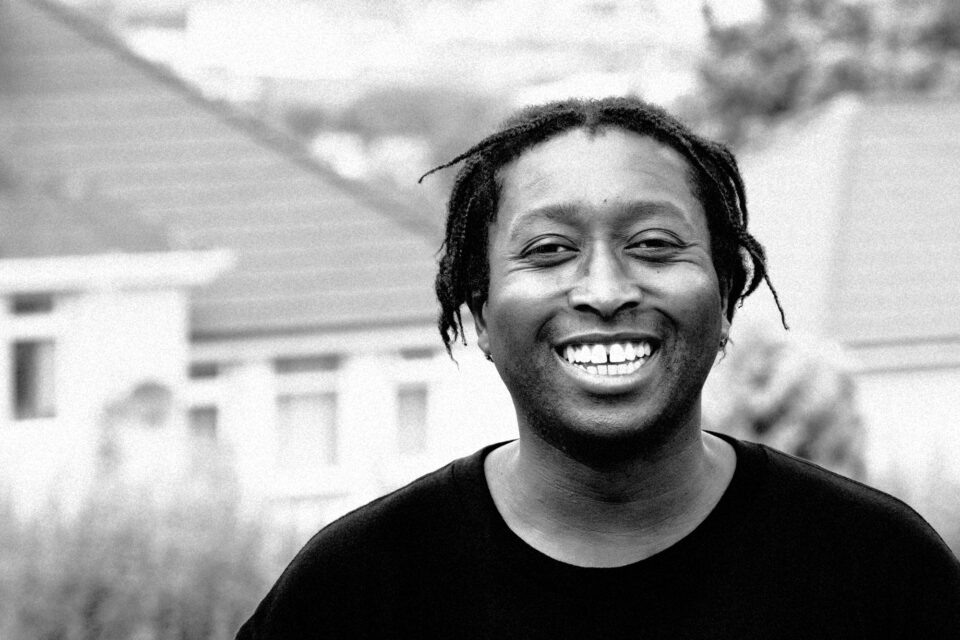Previous post
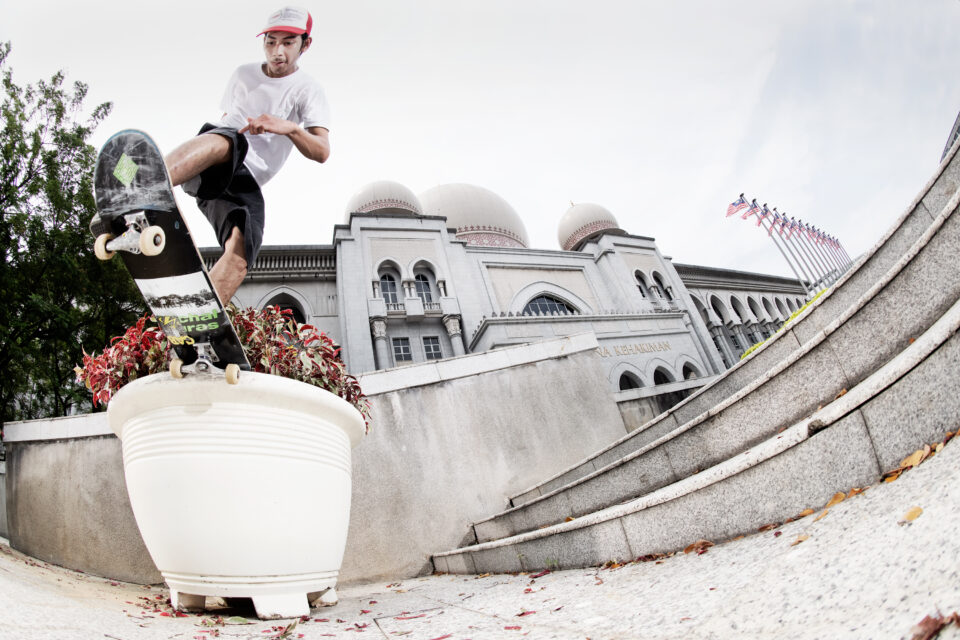
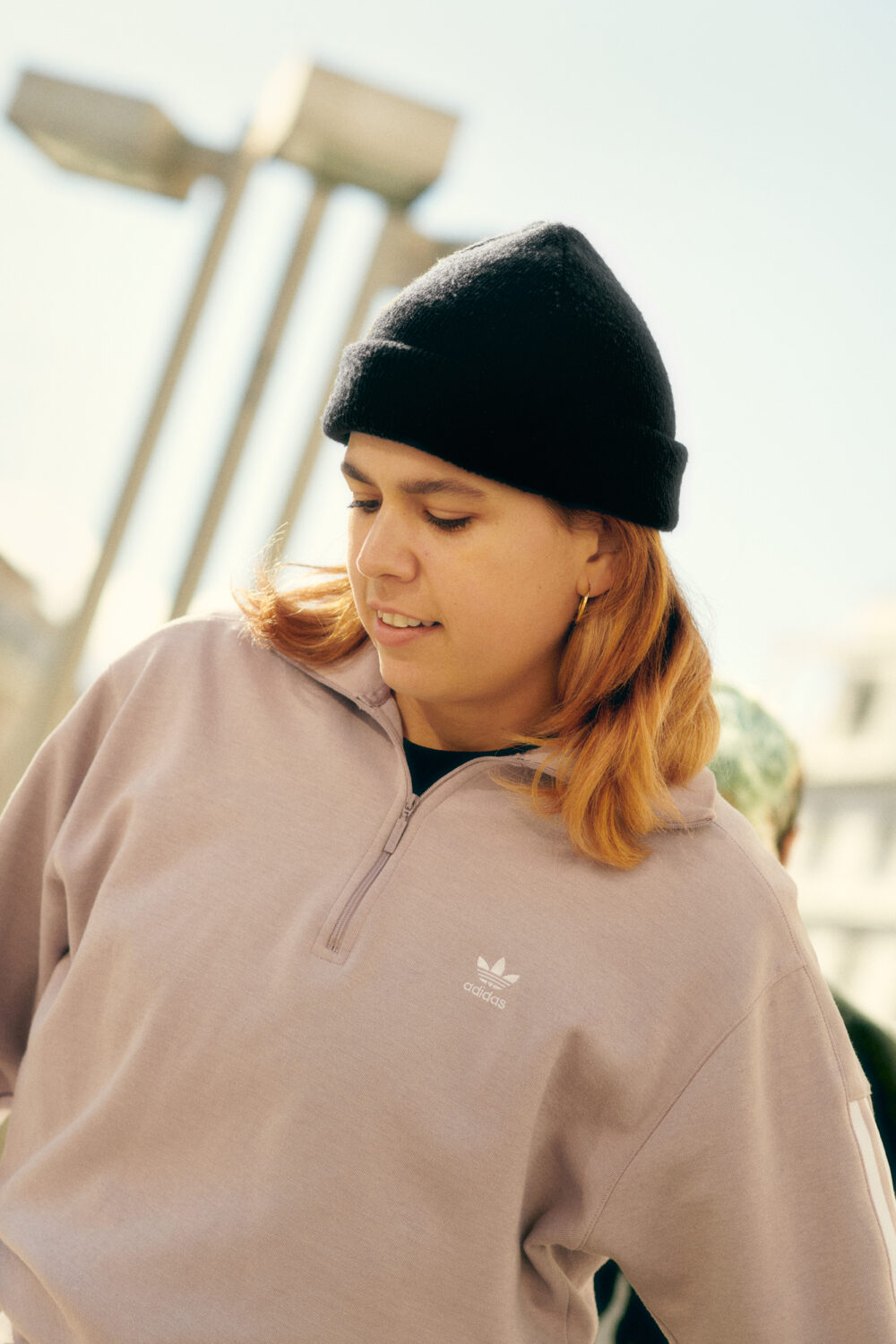
Portrait: Rios
Interview: Kingsford
Where did you grow up?
I grew up in a small city in the south of Spain called Algeciras.
How was the skate scene there?
There weren’t many skaters. When I started skating my parents had recently got divorced, so I was spending one weekend with my dad and one with my mum. I told my dad I was really interested in skateboarding and he was like: “OK, I can take you to a skatepark.” There weren’t any in my home town, so he would drive me to Malaga or Chiclana (de la Frontera).
When did you move away from Algeciras?
I got sponsored by Vans when I was 14, but other than that not much was really happening. It didn’t seem possible to make a living out of skating, so I decided to focus more on studying and got an Erasmus scholarship to move to Wroclaw, Poland for a year when I was 19.
After Poland I decided to move to Barcelona to continue my studies and skate. At first I found it hard to study there and have a balanced lifestyle, so I was back and forth between there and Algeciras for a year or so, before properly moving to Barcelona. I lived there for a couple of years then I made the move to Madrid and here I am.
How do you like living in Madrid?
It felt like home from the very first moment, like I fit. As soon as I moved here I met my best friends and we made a little gang we call the Anx Crew, like anxious. Also my sister lives here, which made things easier. There is definitely a good skate scene. I feel like people are just really nice and open to each other.
What is your go-to spot?
It’s complicated because when I moved here I was forcing myself to skate more skateparks so I could practise for the Olympics. Nowadays I keep switching. I like to switch and discover new spots.
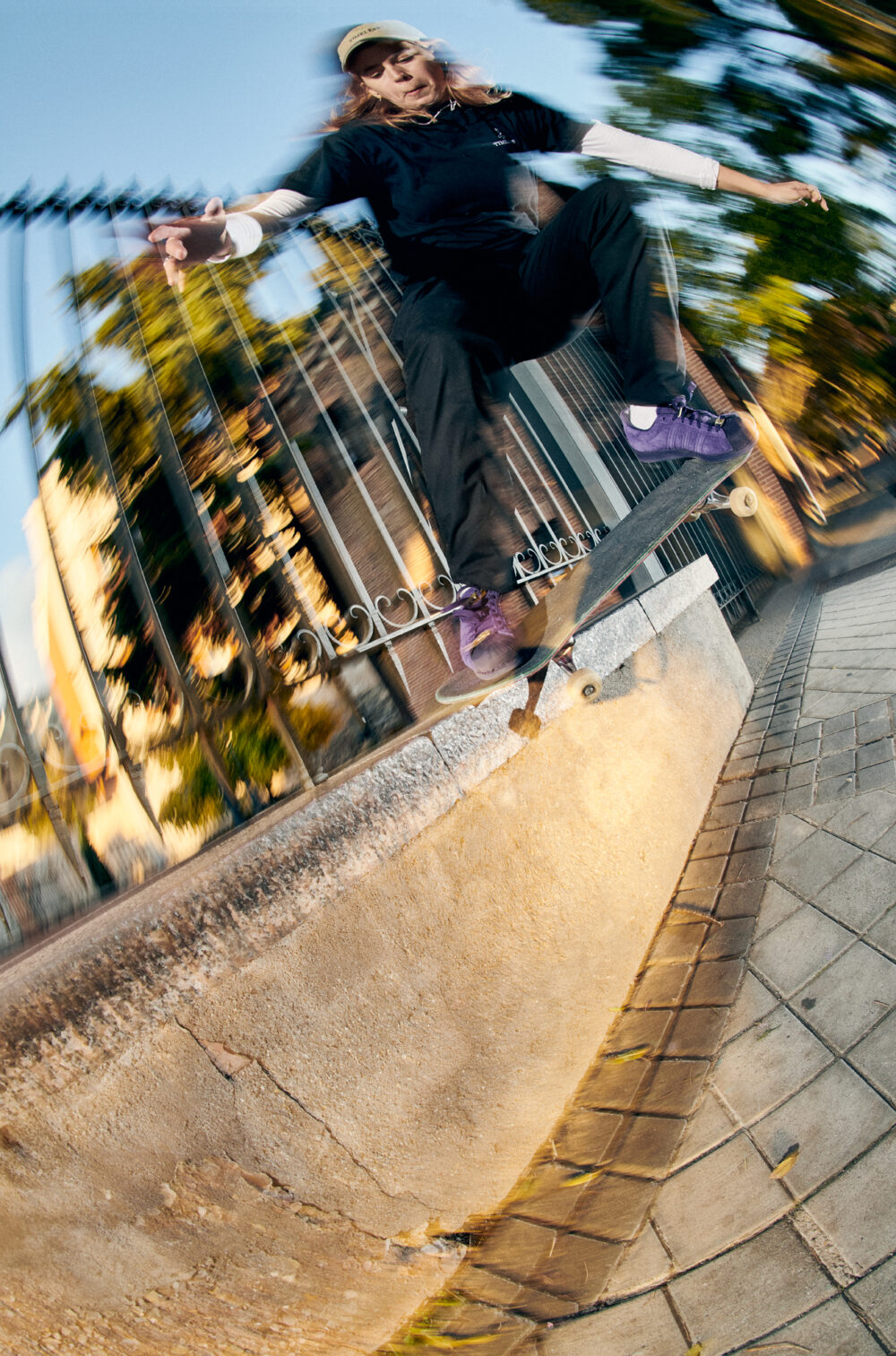
You’ve spent lots of time in London over the past two years. What’s your connection to the city?
My girlfriend was in college in London, so I would visit often. I needed a change, to skate somewhere different, so I decided to stay longer. I was staying for a month at a time then coming back to Madrid.
How did you find skating here?
I really loved it. I understand that people who live there have a love-hate relationship with the city because it’s not easy to skate there. The weather makes things really difficult, but I felt really inspired there. I felt like I could get more creative with the spots. Also the skate scene was super open. It was really easy to meet people there.
Who did you skate with in London?
I skated a lot with Ryan (Barrett), Léo (Meggle), Rose, Slim, Mimi… I would just go to Southbank and if people were down to go on a mission, we would go.
Tell us about London Wizardry, the video project you worked on here.
After the Olympics I felt like I needed to do something creative again to feel connected to my old self, when I was skating more street than anything else, so I decided to film a part in London. I met Will Boardman, who has a (Panasonic) P2, told him I wanted to film and he was super down. I met his brother Michael – who also films – and then I met Chris (Dale), another filmer. We basically made it happen the days the weather let us. I decided to film the B-roll and edit the video myself to make it really personal. I showed it to Krux and they were really stoked about it, so we decided to make it my welcome-to-the-team part.
That’s nice. Am I right in thinking you were the first woman to skate in the Olympics?
Yes, I was.
How did you get to that point? What was the process?
So I was 21, maybe 22 when World Skate announced skateboarding was going to be in the Olympics and that there was going be a qualification process. I was with my dad when I heard and I was like: “Well somebody has to go, no?” There weren’t many female skaters back then – it wasn’t really like now – so I spoke with the Spanish Federation (Real Federación Española de Patinaje) and started competing more consistently. In the beginning I was mostly travelling alone or with other skaters. There weren’t any professionals from the Federation, any coaches or physiotherapists assigned for skateboarding trips. Eventually it became more organised and I started travelling with a coach. Then I started travelling with the Spanish team for the qualifying contests. It was really fun.
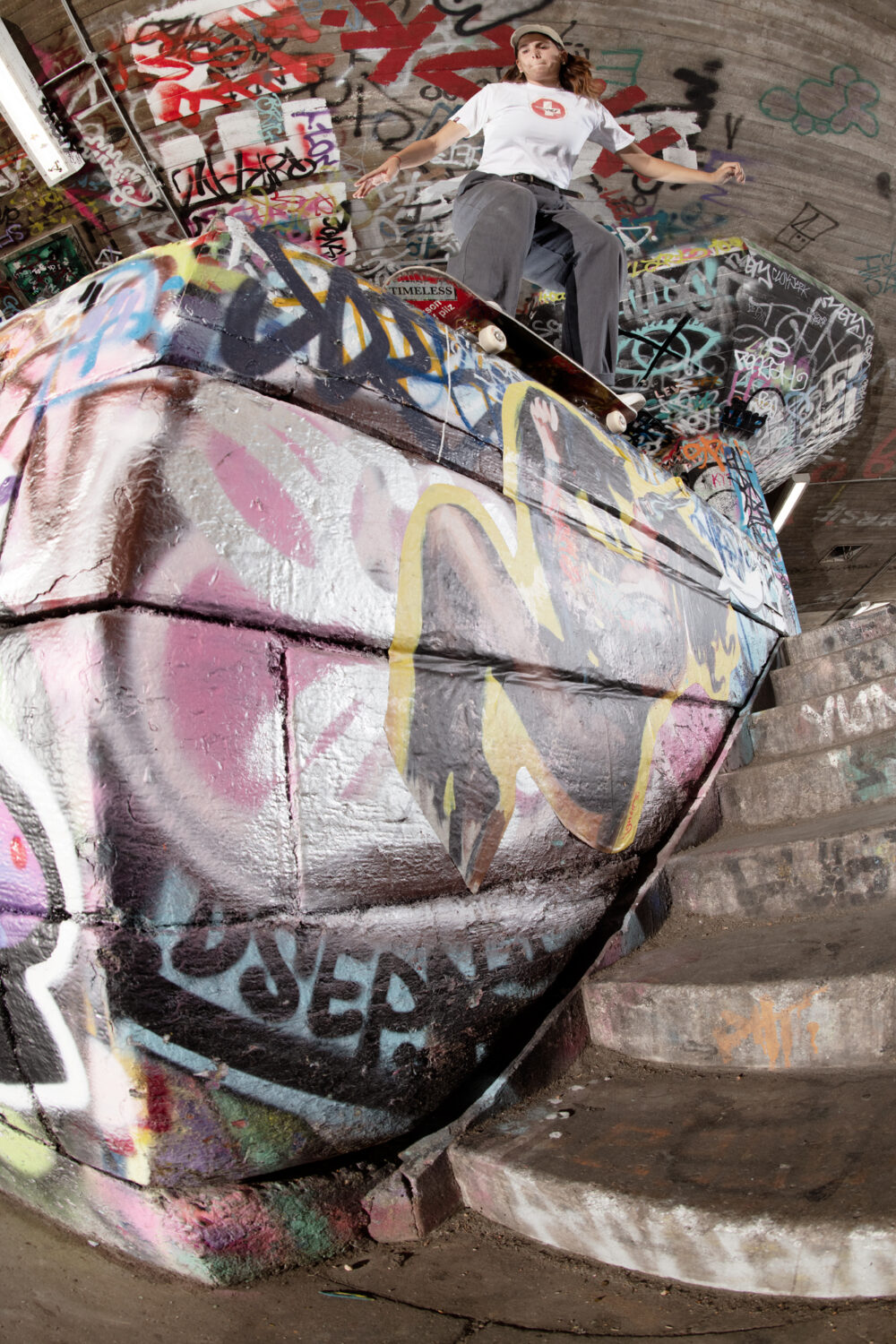
So you were enjoying the process at this point.
Yes. It was cool to travel with people rather than alone, like in the beginning. But then Covid came. It was really difficult in Spain because we had a really strict lockdown. We couldn’t do any sports outside. And the Olympics got postponed. After the lockdown the Federation told us that there were going to be two more qualifying contests. I was honestly starting to get stressed back then because I felt a lot of pressure. Other countries had different kinds of lockdowns. They could do sports, they had indoor skateparks with perfect handrails, perfect everything… I didn’t do much when I was at home. I was working out in my room but it was really difficult. I did well in those contests but at the same time I felt like I wasn’t doing well. I wasn’t sleeping well before them. I started going to therapy because of that. I was just feeling really overwhelmed by everything.
That sounds intense.
It was. So there was a qualifying contest in Rome, the last one that counted. 20 people could go to the Olympics but there was also a rule that there had to be at least one person per continent. It was minimum one per continent, maximum three per country. No one from Africa had been competing up until that point, but then in Rome two riders from South Africa participated for the first time. Neither passed the first qualifier but because of the one-per-continent rule, one was put in 20th place and I got moved down to 21st.
So I didn’t qualify for the Olympics. I understand the importance of each continent participating but as it was a last minute surprise, I was devastated. I had done all these years of qualifying, then a month before the Olympics they told me this. I changed my flight, left before everyone else and cried the whole flight back to Spain. After that I was depressed. I went to Copenhagen to visit my friend Euge Ginepro and we ended up house sitting for another friend, Maria Lima. It was something different. I was feeling so much better, then I started seeing (Instagram) Stories from skaters who had arrived at the Olympics, which made me really sad. Then someone from the Federation called and said: “Andrea, Candy Jacobs got Covid, so she’s out of the Olympics and you’re the first one that could replace her.”
Oh wow.
Yes. The Olympics had already started and I had been in Copenhagen for a month not really practising that much. I was skating but just skating for fun. I wasn’t practising eight-stair hubbas. The Federation told me: “We’re going to try to take you there. You’re definitely qualified now but we don’t know if you’re going to make it.” It was a mix of emotions at the moment. I felt really sad for Candy because she’s my friend. They called back and said: “OK Andrea, if you get to Spain today, you can go to the Olympics.” The only flight going to Madrid was in like two hours, but somehow we made it. The next day I received my ticket and all the clothes to compete in the Olympics and the day after I flew to Tokyo. I went alone. Because it was last minute, they couldn’t arrange to send someone from the Federation.
I remember Japan was still taking Covid pretty seriously at this point.
We were locked up in the Olympic Village. You couldn’t leave the area because Tokyo was still in lockdown back then. It was two days before the big competition, but I couldn’t sleep because of jet lag and the usual stress-related insomnia back then.
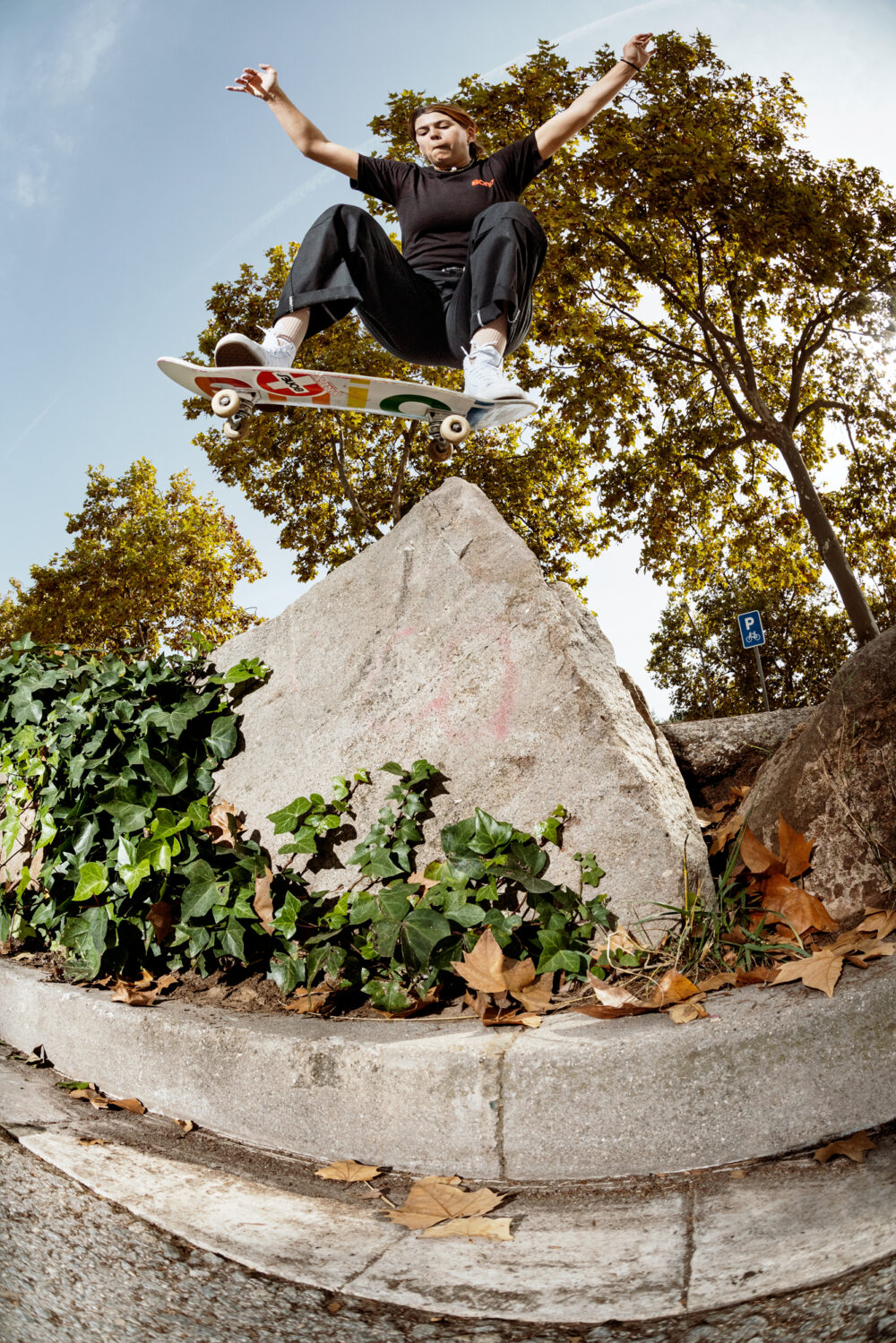
The next day I had practice, the only practice I was going to have. The other skaters had already been there for two weeks or so. I was like: “OK I’m not sleeping well, I’m not eating well, but I’m going to see what I can do,” and practice was OK. I decided not to skate the obstacles in the big section because I didn’t want to destroy my legs and my mind after this fucking rollercoaster! That same day they drew pieces of paper from a jar to determine the order of runs the next day and the first one: Andrea Benítez! I was like: “What the fuck? No, you’re kidding me… I’m going to do the worst skating of my life in front of the whole world and I’m going to be the first one,” (laughs).
I talked to my therapist that night and she said: “You should just enjoy this, do the best you can. You deserve this. Feel like you’re skating your local skatepark.” That really changed something in my mind and I decided I was going to try to do as she suggested. Of course I couldn’t sleep that night either, the night before the big event, but the next day I had this sudden energy out of nowhere. We were all in the bus on the way to the skatepark and the girls had this really amazing energy like: “Let’s go girls… We’re at the Olympics!” I felt like I had slept eight hours. It was really weird. It’s amazing what the mind can do.
I did my two runs well. I don’t think I missed any tricks. I wasn’t doing anything really risky because the park wasn’t that easy to skate. I was having fun. I even did a goofy face to the cameras. Honestly I was the happiest person in the world. After our runs it was best trick. We had five tries. I did a couple of basic tricks, then last try I was like: “OK I can do something easy and get more points, or I can risk it and go to the big hubba that I haven’t practised and try at least a noseslide there.” So I went over and I was there about to drop in on my last try of the Olympics and boom! I did a noseslide! When I landed it I got goosebumps all over. I was saying: “Let’s fucking go!” in Spanish and the cameras caught that, this moment when I was smiling after the noseslide.
That sounds like such a special experience. I wasn’t expecting that.
Yes, there was definitely a happy ending after that rollercoaster. Nevertheless when people ask me: “How was the Olympics?” I get all weird and never know what to say.
Earlier this year you made the decision to opt out of the qualifying process for the next Olympics.
I had a happy ending with the Olympics but I still went through so much the previous months. That summer was the worst of my life. Also my body was suffering a lot. I had been travelling with this ankle injury for a long time. I’m not a little kid any more. I know I’m not old, but still, I’m 28 and when you get to this age you feel injuries differently.
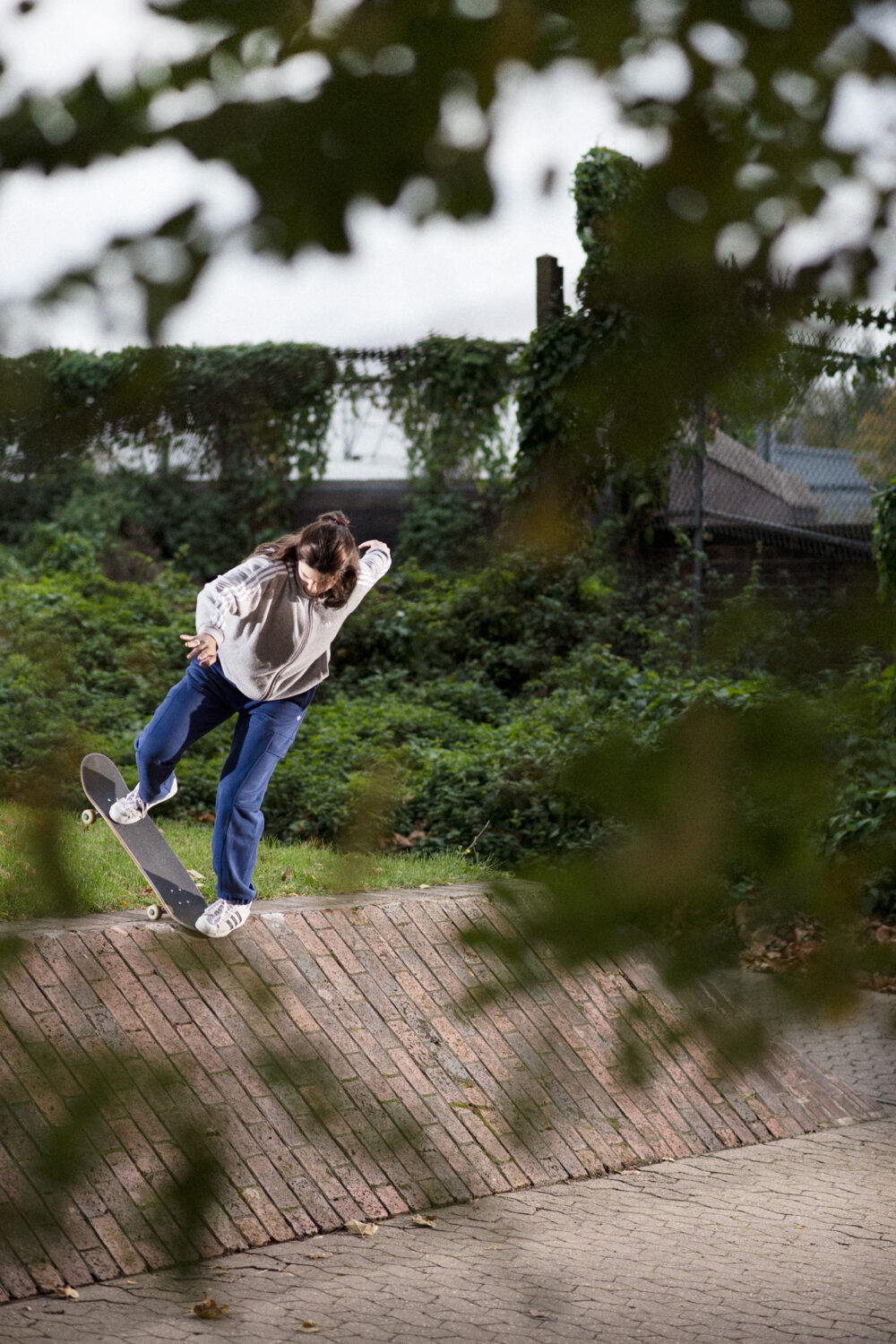
Initially I told the Federation: “I’m in,” but then the events (qualifying contests) were coming up and I was like: “I’m not quite sure I want to do this.” I was getting invited to all these things – the Enjoi High Wire tour for example – and there were clashes with events. I felt like I needed to choose. I recognised that for my body, my mind and my health in general, I didn’t want to do it. So that was it. I went on the Enjoi tour and I talked to my sponsors, who were really supportive, and here I am.
Who has influenced your skating over the years?
I feel like my friends and all the people I’ve met have influenced me more than pro skaters in California. Having said that, when I was little I really looked up to Vanessa Torres. There were female skaters in Spain from the previous generation like Verónica Trillo, Ianire Elorriaga and Begoña Cortés, but I was in this small city and social media didn’t exist, so I didn’t see them.
When did you start playing the guitar?
When I was 14 I got diagnosed with scoliosis and I had to wear a corset for two years. I couldn’t skate as much because the corset was really uncomfortable. I told my mum I really liked music and she got me a guitar. I started playing, learning with Youtube and learning how to play cover songs and that. I kept playing after I got better, even when I didn’t have the corset any more. It’s been more than 10 years.
How do your interests in skating and music feed into each other?
They go hand in hand, they’re united. When I feel more creative with music I feel more creative in my skating. Sometimes they both link up to my mood, to my emotions. You can practise tricks but sometimes you’re in the mood for wallies, it just depends on the day. It’s the same with music. Depending on the day I might feel more like playing blues, jazz or folk.
I wanted to ask about your dissertation. Have you finished studying now?
Yes, I graduated recently, a degree in electrical engineering. I finished my dissertation when I was in England. I decided to make it in some way connected to skateboarding. I asked the guys at the big indoor skatepark (Life Skate Farm) in Santander if they could send me the plans for the park. Then I proposed to my university that I redesign the park’s lighting to make it more efficient.
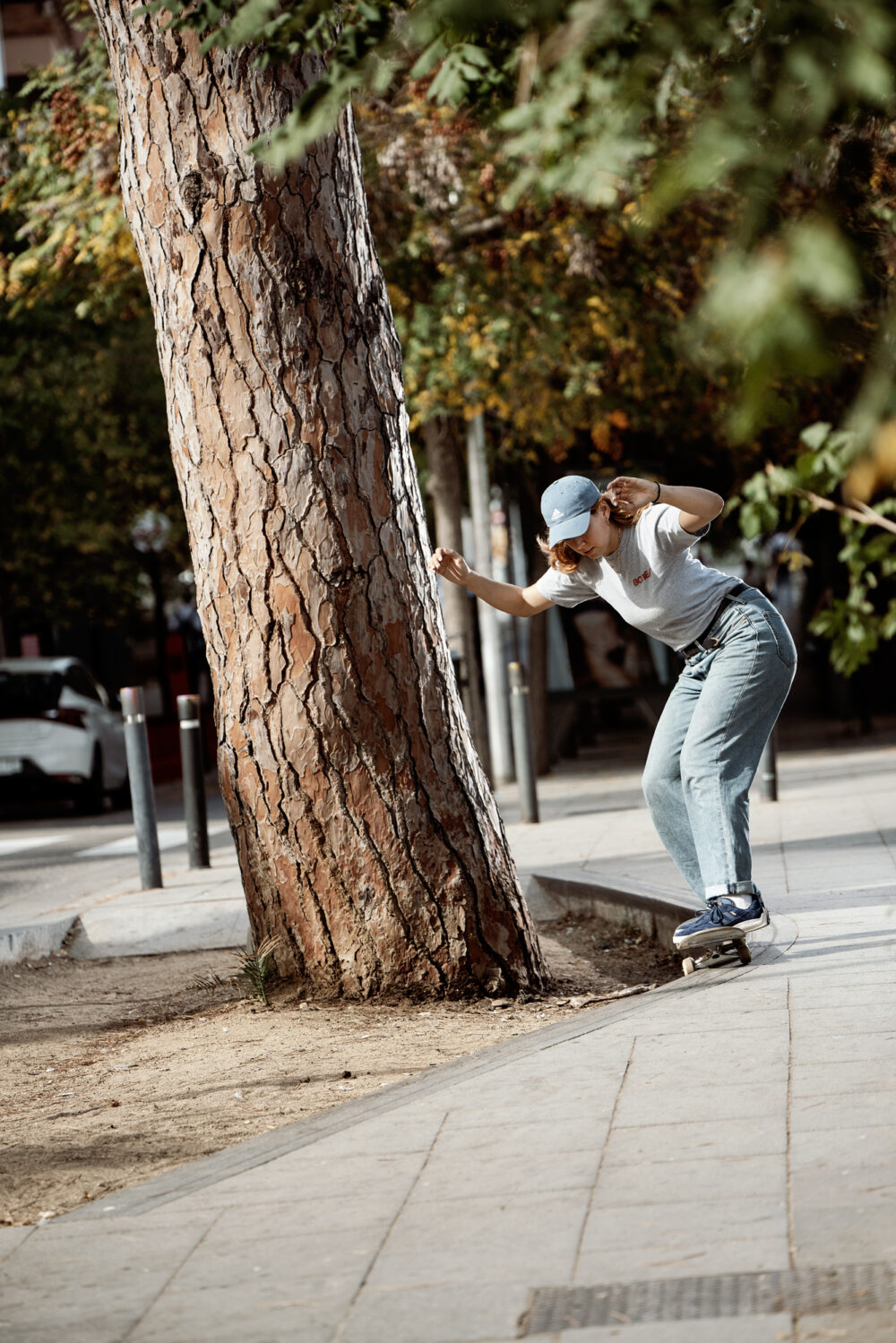
How did that go?
It went really well. I finished last summer and I got 7.5 out of 10. I’m really happy, but if I’m honest with myself, I like electrical engineering, but I wouldn’t say I’m really passionate about it. It’s normal to change interests and what you do in life. You’re 18 when you choose what you want to study. What did I know when I was 18? (laughs). So actually I just enrolled in a masters in graphic design and digital marketing here in Madrid. I start in January. After all these years in skating and all the travelling I feel really interested in graphic design and marketing and I feel like I want to learn properly.
Tell us about your brand, Timeless.
In 2019 I designed a ring for my friend Jeffrey Luque, a skater and a jewellery artist. We made a ring together called the BNTZZ ring – which has a (skateboard) truck crossed with a rose – and everyone loved it. We started selling it in Spain and people from all over Europe were interested. I was going to contests in the US and Brazil and people there wanted them, so we started shipping worldwide. This all happened really quickly. I thought I’d love to have a little brand, something more like a collective than a normal skate brand. So earlier this year I decided to give it a go. After many months of work and designs I started Timeless. We have done some shoots already, we have a website, we have Instagram and the shop is working really well.
So you make clothing and jewellery?
Yes, exactly. I would say I focus more on jewellery, but I’m doing some clothing. They are all my designs.
Do you have any longer-term plans for the future?
I am the kind of person who thinks too much about the future and I’m trying to teach myself not to do that but thank you for reminding me (laughs).
Sorry about that.
I don’t want to think too far ahead. Right now I want to finish this masters. I want to be in Madrid and honestly just get to know the city a bit better because these last years have been too hectic. After that I don’t know. So many things can happen, so I will go with the flow and enjoy the process. We’ll see.

